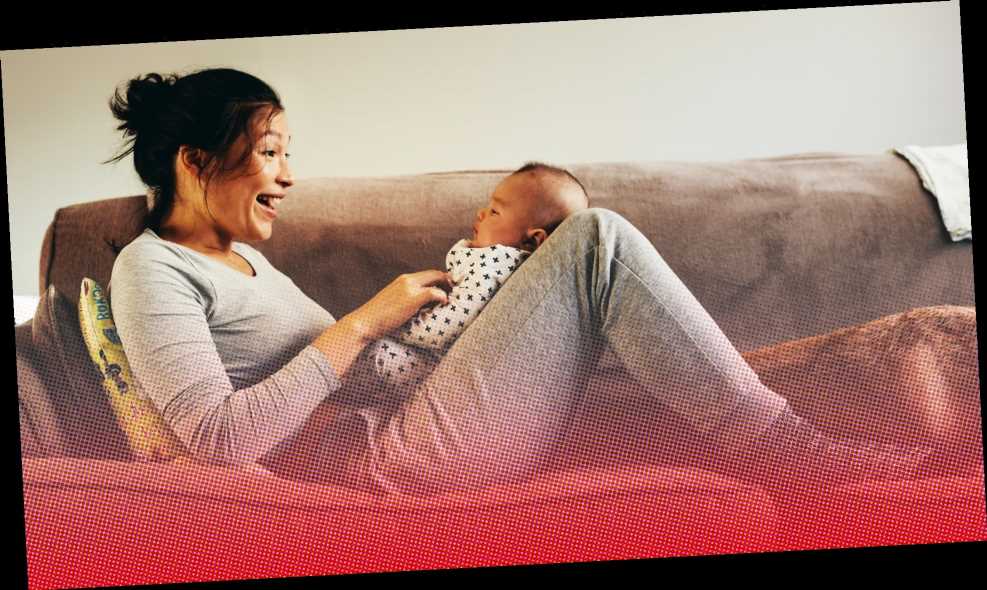If I ran the internet, we would have an introductory course before people could write about their kids or share parenting advice online. The one and only lesson: Kids develop in different ways, at different speeds, and what worked for yours may not work for everyone else’s. A dad in Minnesota who has gone viral for his tweet about baby talk maybe could have used this lesson before he posted last week.
“My wife and I never baby talk to our kids,” Adam Lane Smith (a.k.a. @TheBrometheus) wrote last Saturday. “We use full sentences and a wide vocabulary including complex words. My son is 3 and can carry a full conversation. Adults at family gatherings are shocked at his social aptitude. My daughter isn’t even 2 and she uses 4-syllable words.”
This sparked several child-rearing debates at once. First off, there were the parents going over the pros and cons of baby talk. Many agreed that speaking to children and using proper vocabulary helps them learn. Others pointed to research showing that babies do actually benefit from the sing-songy, simplistic language adults instinctively use with them in their first year.
“I use baby talk and my two year old speaks in complete sentences,” writer Laura Dorwart replied, sharing a link to an article endorsing baby talk, which is sometimes called “parent-ese,” “mother-ese,” or “infant-directed speech.”
Experts agree with Dorwart.
“Mother-ese creates a perfect environment for infants to learn the building blocks of language: Turn taking, pitch changes, loudness, vowel formation, imitation of body position (not sounds yet) and facial expressions,” speech and language pathologist Julie Kouzel told SheKnows years ago.
But she added that those benefits end at around 15 months, when it’s time to start introducing kids to more complex language. “After that, you start to deprive your child of a rich vocabulary, which includes grammatically correct phrases and sentences, proper inflection and pausing spaces and conversational markers,” she said.
So, Smith kind of had a point too. Talking to children at levels beyond their understanding is crucial to teaching them. But Twitter had much more fun mocking his bragging tone than agreeing or disagreeing with him.
“I just make PowerPoint presentations for my kid and require SurveyMonkey for any yes/no decisions,” Juan Romano Chucalescu wrote. “Not really interested in creating emotional connection. So agreed 100%.”
“Sometimes when my 4-year-old son farts it sounds like a duck,” @mattcoyney replied.
“I only spoke to my child in Shakespeare lines and now he doesn’t even exist and at 4 only speaks in iambic pentameter,” Allison Floyd quipped.
When the tweet started to go viral, Smith seemed to be trolling readers with another tweet.
“This is taking off pretty hard so two things: Homeschool your kids if you don’t want them exposed to rapacious teachers and poisonous families. Public school is a meat grinder where many die,” he wrote, and added a link to his self-help book, Slaying Your Fear.
There were many Twitter users ready to take the bait, hitting him with plenty of criticism for homeschooling.
“My husband and I never baby talk to our kid,” Hannah Grieco tweeted. “We use formulaic generalizations about public schools and teachers and pretend we are individualizing! But really it’s about me and my ego! My son is a genius because of ME ME ME!”
The thread is very entertaining, but I just want to emphasize one more time: What works for one kid, may not work for another. If you are in any way concerned about your own child’s speech, you can start with this Speech and Language Developmental Milestones checklist from the National Institute of Deafness and Other Communication Disorders, or speak to your child’s pediatrician.
Source: Read Full Article
